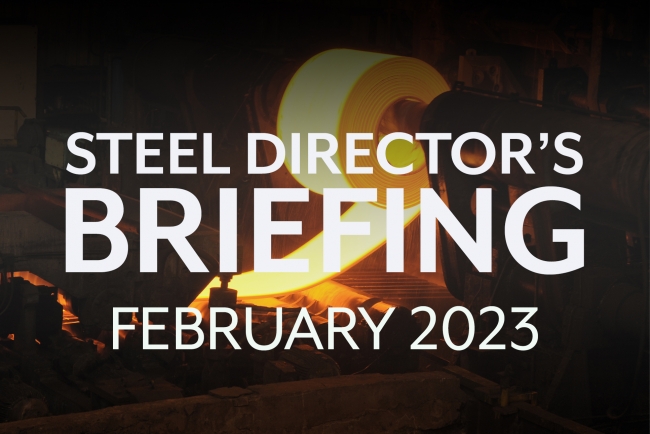Steel Director’s Briefing – July 2024
Now that we have clarity on the next UK government, with Labour securing a significant majority, the steel industry is…


In last month’s briefing, I asked if another wave of pent-up demand was about to hit the steel market. One month later, and I think it’s fair to say that the answer is somewhat ambiguous.
Demand for forward requirements has definitely increased. End users have accepted that price increases are, at least in the short / medium term sustainable, and are placing orders to guarantee supply and mitigate against further increases. However, there are supply-side problems that are restricting material availability and stimulating demand as buyers scramble to secure the material that they require.
Production at Tata Steel’s Port Talbot plant has been disrupted by an acute shortage of domestically produced hydrochloric acid. This has compounded previous manufacturing difficulties and caused significant disruption. Tata’s production problems have unfortunately not been limited to Port Talbot. Tata Steel Netherlands has declared force majeure at their Ijmuiden plant because of difficulties upgrading its cold-rolled mill.
Given the situation, they find themselves in, Tata are not accepting orders for March and have pushed orders back until April and beyond. Because of these ongoing issues, and the resultant restricted supply, buyers are looking to transfer orders to other European mills, which is having a knock-on effect and pushing European lead times well into Q3.
The earthquakes that devastated Turkey in early February have had an impact on Turkish steel production; according to S&P Global, at least five “steelmakers in the region have issued a joint force majeure notice, citing the president’s decree introducing a three-month state of emergency in the impacted regions” and have focused solely on assisting the relief efforts. Reports suggest that Turkey has sufficient production capacity to meet the demands of reconstruction but this focus on domestic production will inevitably limit their ability to meet export requirements.
Disruption in Europe and Turkey means that buyers are looking for opportunities in other regions. With lead times in Europe extending into Q3, it can be just as quick to order from Asia, assuming prices are favourable, and such offers can be found. However, validity periods are extremely short – often 24 or 48 hours – and it can be difficult to convey to end-users the importance of making a quick decision if the opportunity is not to be missed.
Last month we wrote about the potential of a “great reopening in China” but, as of now, we must wait and see if it will have an impact on the steel market. However, price increases have been secured in the Far East, which suggests that an upturn in demand may be taking place.
In summary, we have seen an increase in prices and in demand, but much of this appears to be being driven by a number of supply chain difficulties rather than a shift in underlying real demand. In the short to medium term, this looks unlikely to change so we should not expect prices to fall back while this situation persists.
As passionate advocates of UK manufacturing, one area of concern that we should all have is with regard to UK Automotive output. It has been falling for several years, and there have been a number of concerning reports over recent months.
In October, BMW announced that it is planning to move production of its electric cars to China, whilst in February, Nissan publicly expressed their fears about the long-term competitiveness of their Sunderland facility.
Just a few days ago, JLR owner Tata Motors insisted that it will not commit to building a UK battery factory without extensive Government financial support.
On the face of it, the shift towards electrification should present a number of opportunities for the UK Automotive industry against this backdrop of falling output and concerning reports. However, despite setting a very ambitious automotive roadmap and committing to end sales of new petrol and diesel cars and vans in 2030, there is very little government clarity around strategy and how the country will build the infrastructure required to meet these targets.
Urgent action is necessary to address these issues. The future of the UK Automotive industry depends upon it.